Is Surgical Science Dead?
Lessons from Department of Surgery's 6th Annual Research Symposium in Surgical Sciences
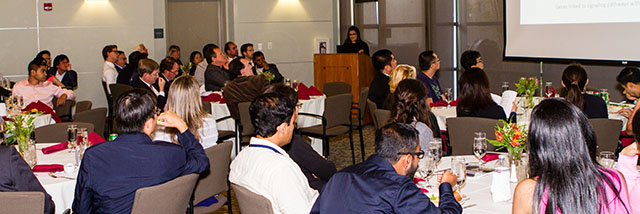 On May 3, 2017, UC San Diego’s Department of Surgery hosted its 6th Annual Research Symposium in Surgical Sciences, an event that brings together the Department’s faculty, scientists, residents, research fellows, post-doctoral scholars, and medical students to present the latest in cutting edge research.
On May 3, 2017, UC San Diego’s Department of Surgery hosted its 6th Annual Research Symposium in Surgical Sciences, an event that brings together the Department’s faculty, scientists, residents, research fellows, post-doctoral scholars, and medical students to present the latest in cutting edge research.
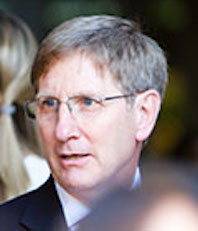 From immune response to pancreatic cancer; and addressing fatty liver disease with bariatric surgery; to novel ways to identify and preserve important nerves during surgery; and new pathways for treating lung cancer; this year’s event showcased the Department’s diversity, ingenuity, and commitment to patient care. Participants viewed poster and oral presentations from residents and faculty across the Department’s 12 divisions, and heard remarks from Professor Allan D. Kirk , the David C. Sabiston, Jr. Distinguished Professor of Surgery, Pediatrics and Immunology at the Duke University School of Medicine.
From immune response to pancreatic cancer; and addressing fatty liver disease with bariatric surgery; to novel ways to identify and preserve important nerves during surgery; and new pathways for treating lung cancer; this year’s event showcased the Department’s diversity, ingenuity, and commitment to patient care. Participants viewed poster and oral presentations from residents and faculty across the Department’s 12 divisions, and heard remarks from Professor Allan D. Kirk , the David C. Sabiston, Jr. Distinguished Professor of Surgery, Pediatrics and Immunology at the Duke University School of Medicine.
“Held to celebrate advances in surgical sciences at UC San Diego, we saw firsthand the breadth and depth of our research base, and proof once again that the Department of Surgery’s emphasis is on all three of its academic missions: state-of-the-art research, education and clinical care,” says Dr. Andrew Baird, PhD, Vice Chair of Research and organizer of the symposium. “In a world of where alternative facts seem to have everyone’s attention, it’s a relief and refreshing to let science and the facts speak for themselves.”
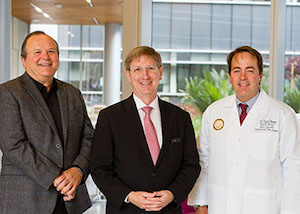 UC San Diego’s Department of Surgery is part of a thriving research enterprise, with "wet" laboratories for basic research on the Hillcrest, La Jolla and VA campuses; and "dry" labs for outcomes research. In other cases, research activities are found throughout the medical school. As Dr. Baird noted in his morning Grand Rounds presentation, surgery faculty serve as co-investigators in nearly a third of federally funded department research, underscoring the department's role in enabling clinically- relevant and translational research for faculty throughout the medical school. This influence extends beyond the School of Medicine, through joint research projects in departments such as Computer Science and the Jacobs School of Engineering. Of the remaining surgery led federal funding, the distribution of non-surgery co-investigators is almost equally diverse and in the last 6 months alone, surgery faculty have sought over $20 million in federal funding, in partnership with scientists throughout UCSD.
UC San Diego’s Department of Surgery is part of a thriving research enterprise, with "wet" laboratories for basic research on the Hillcrest, La Jolla and VA campuses; and "dry" labs for outcomes research. In other cases, research activities are found throughout the medical school. As Dr. Baird noted in his morning Grand Rounds presentation, surgery faculty serve as co-investigators in nearly a third of federally funded department research, underscoring the department's role in enabling clinically- relevant and translational research for faculty throughout the medical school. This influence extends beyond the School of Medicine, through joint research projects in departments such as Computer Science and the Jacobs School of Engineering. Of the remaining surgery led federal funding, the distribution of non-surgery co-investigators is almost equally diverse and in the last 6 months alone, surgery faculty have sought over $20 million in federal funding, in partnership with scientists throughout UCSD.
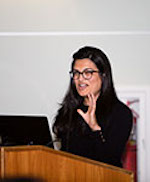 The symposium took place in a context of concern among surgeons nationally at the decline in research among their ranks. A recent Nature editorial, citing a September 2016, report published in Annals of Surgery, which looked at grants awarded by the NIH to the 25 top-funded academic medical centers, found, “that the proportion of funding to surgical departments dropped from 3% to 2.3% over the period 2006–14. Within individual medical faculties, the proportion of money going to surgical departments also fell. This is consistent with earlier studies showing that fewer surgeon-scientists apply for NIH grants and that those who do tend to be less successful than their medical colleagues in non-surgical disciplines (S. J. Rangel and R. L. Moss Surgery 136, 232–239; 2004).”
The symposium took place in a context of concern among surgeons nationally at the decline in research among their ranks. A recent Nature editorial, citing a September 2016, report published in Annals of Surgery, which looked at grants awarded by the NIH to the 25 top-funded academic medical centers, found, “that the proportion of funding to surgical departments dropped from 3% to 2.3% over the period 2006–14. Within individual medical faculties, the proportion of money going to surgical departments also fell. This is consistent with earlier studies showing that fewer surgeon-scientists apply for NIH grants and that those who do tend to be less successful than their medical colleagues in non-surgical disciplines (S. J. Rangel and R. L. Moss Surgery 136, 232–239; 2004).”
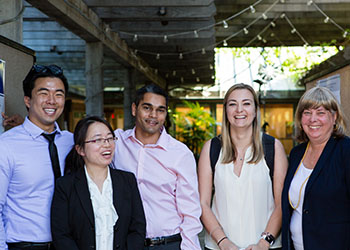 In his keynote address, Professor Kirk suggested that the main impediment is incentives: “The financial rewards of doing research are limited. And in surgery, the gap between the fiscal rewards of research and clinical practice is the widest.”
In his keynote address, Professor Kirk suggested that the main impediment is incentives: “The financial rewards of doing research are limited. And in surgery, the gap between the fiscal rewards of research and clinical practice is the widest.”
Dr. Bryan Clary, Chair of the Department of Surgery, agrees that this is a worrisome trend among surgeon-scientists, but is optimistic about the future: “Research is the cornerstone of our department. It as an essential part of our founder’s vision, and it remains core to our practice today. It is my goal to facilitate and enable faculty to expand our impact on patients through research, by strengthening infrastructure, developmental plans and mentorship, and facilitating collaborations with natural partners. Research is rewarding in itself, advances the field, and makes us better surgeons to our patients.”
